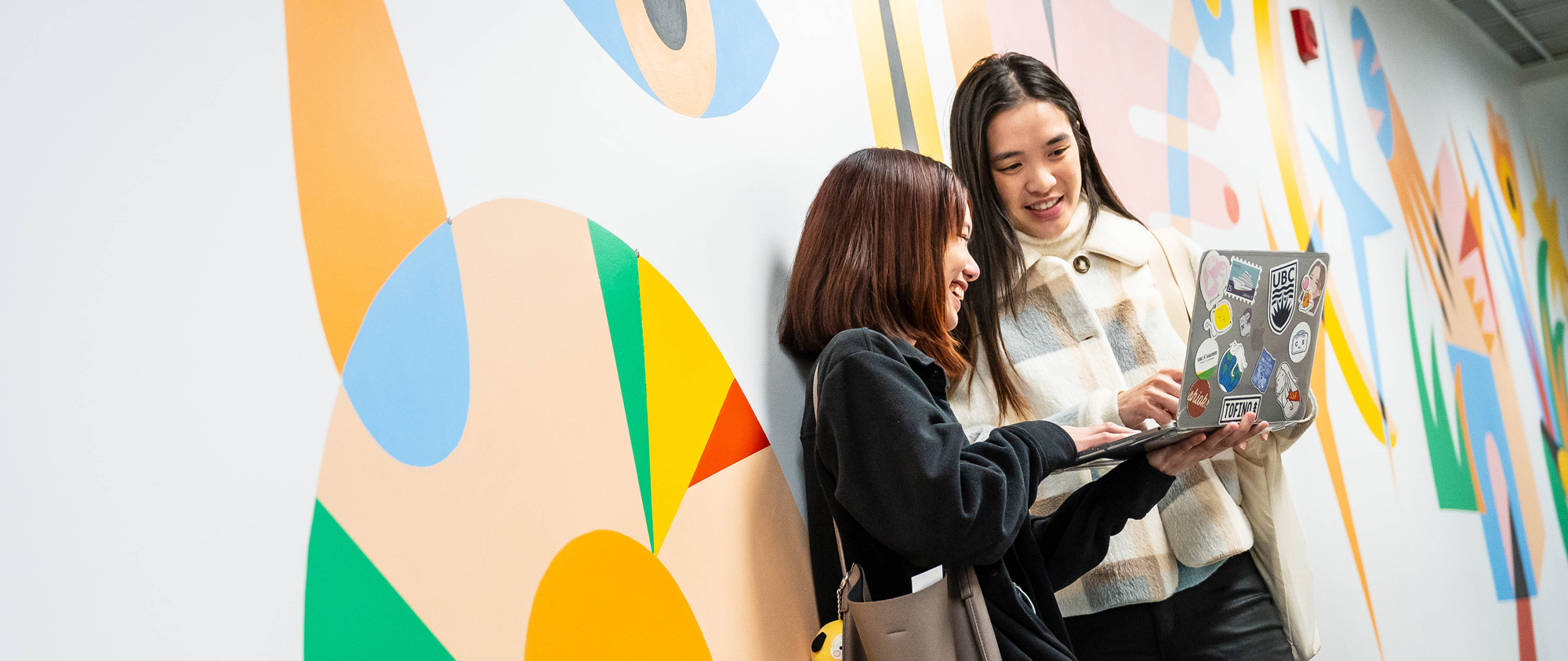
Written by Christina Hendricks, Vice-Provost and Associate Vice-President, Teaching and Learning pro tem, UBC Vancouver; Tamara Ebl, Lecturer, Faculty of Management, UBC Okanagan, and UBC Okanagan Teaching Fellow 2023-2024; and Kamil Kanji, Elected Student Senator-at-Large, Vice Chair of the UBC Vancouver Senate, Vice Chair of the UBCV Senate Academic Policy Committee and elected Vice President of the Student Legal Fund Society.
In the fall of 2023, UBC created the Generative AI in Teaching and Learning Advisory Committee, with a wide membership across both campuses, and the three of us as co-chairs. Given questions and concerns about generative AI (GenAI) and academic integrity within UBC community, academic integrity quickly became one of the prominent discussion topics in the group, though many others have emerged as well.
This Advisory Committee is one of several subcommittees of the broader UBC Generative AI Steering Committee that was established in spring 2023 with a wide remit, including discussion of opportunities and risks of GenAI in teaching and learning, administrative activities, communications, technology development and support, and more.
The Advisory Committee focuses on benefits, challenges, and risks of using GenAI tools in teaching and learning activities, including in the areas of academic integrity, Indigenous data sovereignty, equity and inclusivity, accessibility, privacy, and intellectual property. The Advisory Committee has met monthly since October 2023 and will continue until June 2024.
One of the Advisory Committee’s main objectives has been to develop a set of principles and guidelines for students, faculty, teaching assistants and staff use of GenAI tools in teaching and learning. These guidelines are meant to provide more specific direction within a broader set of principles on GenAI produced through the UBC Generative AI Steering Committee. You can find them here: Principles for the Use of Generative AI Tools.
Having people with multiple experiences, expertise, and perspectives involved in generating and refining such principles and guidelines has been a key driver for the membership from both campuses, which includes faculty and students, along with representatives from Graduate Studies, VP Students offices, the UBC Library, the Ombudsperson for students, the Centre for Teaching & Learning (UBCO) & Centre for Teaching, Learning & Technology (UBCV), and the Academic Integrity Hub (UBCV).
Co-Chair perspectives

As a Professor of Teaching in Philosophy and Vice-Provost and Associate Vice-President Teaching and Learning pro tem, Christina Hendricks wants to ensure that many people with various experiences, expertise, and roles are involved in developing institutional principles and guidelines for GenAI in teaching and learning. It has been crucial to have students, faculty, and staff from many different disciplines, units, and portfolios involved in discussions, including advice on communications, resources, and events to support further learning about GenAI amongst the UBC community.
.

As a contract Lecturer with over a decade of experience teaching on UBC’s Okanagan campus, Tamara Ebl appreciates the complex challenges faced by students, faculties, TAs, and staff throughout the UBC community, particularly with respect to the relatively recent introduction and rapid pace of advancement of ChatGPT (and other similar GenAI technologies). Tamara’s perspective continues to evolve, but it remains her focus to promote timely development and clear communication of relevant principles and guidelines to thoughtfully address the challenges and promote practical opportunities for use of GenAI in constructive ways.
..

As a UBC Vancouver Student Senator and also the Vice-President Academic Affairs of the Alma Mater Society, Kamil Kanji emphasizes the importance of having student leadership from both campuses on the committee, to better consider the various needs of students as well as faculty and staff. It has been an excellent mapping experience to really consider the impact GenAI is having on students and how we can utilize it in a way that is less punitive but far more constructive towards achieving learning objectives. By centering students in this process we divert from inherent teaching biases that may jump to the total exclusion of GenAI use in classrooms to solutions that are more focused on integration into pedagogical approaches.
..
Upcoming guidelines on GenAI in Teaching and Learning
For the last few months, the Generative AI in Teaching and Learning Advisory Committee has been actively working on a set of principles and guidelines for using GenAI in teaching and learning by students, faculty, TAs, and staff. The principles and guidelines are currently in draft form and undergoing consultations across the university. The draft guidelines have a set of broad principles that act as a foundation, focusing on respecting Indigenous data sovereignty rights; supporting equity and inclusion; upholding academic integrity, privacy and confidentiality; respecting copyright and intellectual property; disclosing and attributing use of GenAI; and ensuring human oversight of AI-generated work used for teaching and learning. In addition, the guidelines provide specific guidance to instructors and TAs about teaching with GenAI, and to students about learning with GenAI.
Academic integrity features prominently throughout the document, being highlighted in providing guidance for instructors on communicating with students if and how they are permitted to use GenAI tools for their coursework, advice about the use of AI detector tools, and guidance for instructors and students about disclosing and attributing use of GenAI in their academic work.
Advisory Committee discussions about these principles and guidelines have been rich and have revealed numerous complexities, including that the types and capabilities of such tools continue to change even as we are discussing how to use and adapt to them. Accordingly, even after consulting with many more partners in the institution we know we will not get everything right, and that these principles and guidelines will need to adapt over time. The Advisory Committee aims to share the first version with the UBC community in the next few months, and will also be considering a process for further iteration over time. Please refer to the Advisory Committee website further for further information.